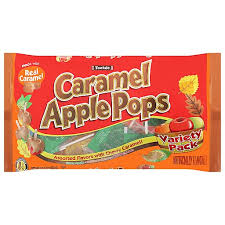The Nutty World of Nuts
Nuts are nature’s crunchy treasures, packed with flavor, nutrients, and versatility. From almonds to walnuts, cashews to pistachios, the world of nuts offers a wide array of options for both culinary and health enthusiasts.
Health Benefits
Nuts are nutritional powerhouses, rich in protein, healthy fats, fiber, vitamins, and minerals. They have been linked to numerous health benefits, including improved heart health, weight management, and reduced risk of chronic diseases like diabetes and cancer.
Culinary Delights
Whether roasted, salted, or raw, nuts add a delightful crunch and depth of flavor to a variety of dishes. They can be sprinkled over salads, blended into creamy nut butters, or used as a key ingredient in both savory and sweet recipes.
Popular Varieties
Each type of nut brings its own unique taste and texture to the table. Almonds are known for their mild sweetness and versatility in cooking. Walnuts offer a rich earthy flavor that pairs well with cheeses and fruits. Cashews are prized for their buttery texture and creamy taste.
Fun Facts
- Peanuts are not true nuts but legumes.
- Pistachios are known as the “smiling nut” in Iran and the “happy nut” in China due to their slightly split shells resembling smiles.
- Brazil nuts are one of the best sources of selenium, a powerful antioxidant mineral.
Whether enjoyed as a snack on-the-go or incorporated into your favorite recipes, nuts offer a delightful combination of taste and nutrition that truly makes them nature’s gift to food lovers everywhere.
Everything You Need to Know About Nuts: Health Benefits, Types, Storage, and More
- Are nuts good for your health?
- What are the different types of nuts?
- How should nuts be stored to maintain freshness?
- Are there any nut allergies I should be aware of?
- Can nuts help with weight loss?
- What are the nutritional benefits of eating nuts?
- How can I incorporate more nuts into my diet?
Are nuts good for your health?
Nuts are indeed beneficial for your health, offering a wealth of nutrients and health-boosting properties. Packed with healthy fats, protein, fiber, vitamins, and minerals, nuts have been associated with various health benefits. Regular consumption of nuts has been linked to improved heart health, weight management, and a reduced risk of chronic diseases like diabetes and cancer. Including a variety of nuts in your diet can contribute to overall well-being and make for a satisfying and nutritious snack option.
What are the different types of nuts?
When exploring the diverse world of nuts, one encounters a rich variety of options to tantalize the taste buds. From creamy cashews to crunchy almonds, earthy walnuts to buttery pecans, and the vibrant hues of pistachios to the robust flavor of hazelnuts, each type of nut brings its own unique characteristics and nutritional benefits to the table. Whether enjoyed on their own as a wholesome snack or incorporated into an array of dishes for added texture and flavor, the different types of nuts offer a delightful spectrum of tastes and textures for culinary enthusiasts to savor and appreciate.
How should nuts be stored to maintain freshness?
To maintain the freshness of nuts, it is essential to store them properly. Nuts should be kept in a cool, dry place away from direct sunlight and heat sources. Ideally, store nuts in airtight containers or resealable bags to prevent exposure to moisture, which can cause them to become rancid. Refrigeration or freezing can also extend the shelf life of nuts, especially for longer periods. By following these storage guidelines, you can ensure that your nuts retain their flavor, texture, and nutritional value for as long as possible.
Are there any nut allergies I should be aware of?
Nut allergies are a common concern for many individuals, as they can trigger severe reactions in some people. The most prevalent nut allergies include those to peanuts, tree nuts (such as almonds, walnuts, and cashews), and even seeds like sesame. It’s crucial to be vigilant about reading food labels and asking about ingredients when dining out to avoid potential allergens. For those with nut allergies, it’s advisable to consult with a healthcare professional for guidance on managing and preventing allergic reactions effectively.
Can nuts help with weight loss?
Nuts can indeed aid in weight loss despite their relatively high calorie content. Packed with healthy fats, protein, and fiber, nuts can promote feelings of fullness and satiety, potentially curbing overall calorie intake. Studies suggest that incorporating nuts into a balanced diet may help with weight management by enhancing metabolism and reducing cravings for less nutritious snacks. However, portion control is key, as overconsumption of nuts can lead to excess calorie intake. Including a moderate amount of nuts as part of a well-rounded eating plan may contribute to successful weight loss efforts.
What are the nutritional benefits of eating nuts?
Eating nuts provides a myriad of nutritional benefits that make them a valuable addition to a balanced diet. Nuts are rich in protein, healthy fats, fiber, vitamins, and minerals, offering a wholesome combination of nutrients essential for overall well-being. Regular consumption of nuts has been associated with improved heart health, weight management, and reduced risk of chronic diseases such as diabetes and cancer. Additionally, the diverse array of nutrients found in nuts contributes to their role in supporting brain function and boosting energy levels. Incorporating nuts into your daily diet can be a delicious way to enhance your nutrition and promote a healthier lifestyle.
How can I incorporate more nuts into my diet?
Incorporating more nuts into your diet is a simple and delicious way to boost your nutritional intake. You can start by adding a handful of mixed nuts to your morning yogurt or oatmeal for a satisfying crunch and added protein. Snack on almonds, walnuts, or pistachios during the day for a nutritious energy boost. Sprinkle chopped nuts over salads, stir-fries, or roasted vegetables to enhance both flavor and texture. You can also blend nuts into smoothies or use them as a topping for desserts like ice cream or fruit salads. With their versatility and health benefits, nuts make a wonderful addition to any diet.




